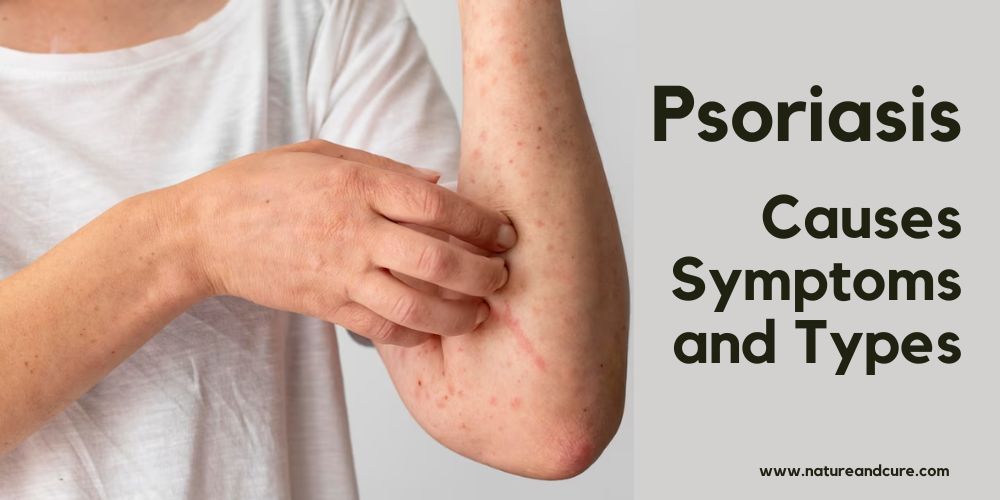
Psoriasis is a skin condition that typically affects the knees, elbows, trunk, and scalp. It generates a rash with itchy, scaly spots. Psoriasis is a frequent, chronic condition that has no cure. It may hurt, keep you up at night, and be difficult to focus on.
There is no specific cause for the skin disease – Psoriasis, but specific conditions, genetic disorders, and environmental factors can result in triggering the symptoms. An autoimmune condition called psoriasis produces inflammation in the body and accelerates the proliferation of skin cells. When this takes place, the skin cells may accumulate and develop into “plaques,” which are large, discolored patches of skin.
The skin may feel itchier and it can be painful. The knees, elbows, and scalp are the common places where people with psoriasis first observe the development of their plaques. Plaques can occasionally extend to the hands, feet, and regions of the body where the skin folds (such as beneath the arms and under the breasts).
Although psoriasis symptoms can appear at any age, plaque development typically begins between the ages of 15 and 35 for most sufferers. The skin disease often goes through phases when it flares up for a few weeks or months and then subsides. Infections, cuts, burns, and specific drugs are common psoriasis triggers in persons with a hereditary predisposition to the condition.
Since research is still under progress, scientists are unsure of the exact cause of psoriasis. Researchers are aware that the disorder is not communicable, and that your immune system’s health and genetics have a significant impact on whether you will get it.
Let’s discuss about the causes of Psoriasis in detail.
Skin cells normally take a month to fully develop and then shed when the immune system is working properly. Skin cells might increase in three to five days when you have psoriasis. Instead of shedding after the cells are finished developing, they accumulate on the skin and turn into dry plaques.
According to research, a problem with your T-cells, or white blood cells, is what causes the overgrowth of skin cells. T-cells play a crucial role in the immune system. By battling bacteria, viruses, and other dangerous substances that enter the body, they assist in keeping you safe.
Your T-cells, however, mistakenly assault healthy skin cells if you have psoriasis. Your body responds by producing more skin cells more often, which eventually cause plaques and scales to appear on your skin.
While psoriasis can occur in those who have no family history of the ailment, a 2020 study indicated that having a family history of both psoriasis and psoriatic arthritis can increase your risk of getting the disease.
According to research, you have a 28% probability of acquiring symptoms if one of your parents has psoriasis. If both of your parents have psoriasis, your chance of getting it increases to 65%.
Before coming to any conclusion, let me tell you there much more to learn about the relationship between genetics and psoriasis.
A few environmental factors can also trigger psoriasis symptoms:
Psoriasis’ typical warning signs and symptoms include
The Types of Psoriasis may vary depending on the signs and symptoms:
Plaque psoriasis is one of the common and frequently occurring skin disease that results in scale-covered, dry, elevated skin patches (plaques). Usually, you may find it on the scalp, lower back, elbows, and knees. Further, depending on the skin tone, the patches have different colors.
Pitting, irregular nail growth, and discolouration can all be brought on by psoriasis and affect both fingernails and toenails. Nails with psoriasis may become detached from the nail bed and become loose (onycholysis). The nail may break if the illness is severe.
Young people and children are most commonly affected with guttate psoriasis. Usually, a bacterial infection, like strep throat, is what sets it off. Small, drop-shaped scaling lesions on the trunk, arms, or legs are its main signs and symptoms.
The groin, buttocks, and breast skin folds are mostly impacted by inverse psoriasis. ISmooth areas of the skin become irritated, and the condition gets worse with friction and sweating. This kind of psoriasis may be brought on by fungi.
The precise cause of psoriasis is currently under investigation, just like other autoimmune illnesses. What is known is that the development of symptoms may be influenced by a number of factors, including a hyperactive immune system, a genetic predisposition to psoriasis, having a family history, and exposure to environmental triggers like stress or illness.
For more such blogs and updates, subscribe to our newsletter.
People are constantly complaining about bad air quality in different regions of India. With the…
UNICEF, the World Health Organization (WHO), and partners have been working on the growing concerns…
We have already talked about mud therapy's benefits in constipation, skin health, and weight management.…
The National Library of Medicine has labeled Vitamin D as a "sunshine vitamin" as it…
Constipation is emerging as a common health problem affecting millions of people. The reason behind…
Naturopathy and nutritional medicine are frequently associated in the context of holistic health. They both…